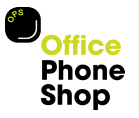What is VoIP?
VoIP or Voice over Internet Protocol is a term used for making voice calls over the internet. It works by converting voice to digital packages and sending them out over the internet like any other data, such as emails.
The destination of a VoIP call could be another VoIP user, a landline or even a mobile. In the case of a landline or a mobile, the VoIP call is ‘converted’ along the way and so ends up as a ‘traditional’ phone call.
Utilising IP telephony (the collective term for VoIP services) allows users to take full advantage of a range of features that you would traditionally find on a PBX system. This includes call transfer, forwarding and hold, call conferencing, mobile office plus many more. The service is feature rich and is easily scalable.
Requirements
VoIP Telephony requires a dedicated data connection, to avoid packet loss. This can occur when there is shared data connection for voice and standard internet usage. The data connection per user should be at least 100k upstream. For instance, if you have ten members of staff and they will all be using the telephone at once, then you need a data connection of at least 1mb upstream.
A good quality VoIP telephone can make a significant difference to the quality of calls made using VoIP, as can a secure VoIP router with echo cancellation. Codecs software compresses the data. This software needs to be specific for voice data and the VoIP router must support this software. To avoid interference with other VoIP equipment, keeping the frequency of the VoIP telephone low will help to ensure calls are clearer.
It is important to put security measures in to operation when using IP telephony. As with any internet application, VoIP is open to viruses and malware, VoIP phishing (vishing), spamming, call tampering and phreaking. Hacking of the telephone lines, the server and interception of calls are all possibilities. Click here for more information about protecting your telephone system.
Advantages
Hosted VoIP telephony is great for companies that need to move into an office quickly. All you need is a data connection for the voice calls to run on and you are not dependant on Openreach installing new lines, which can take over a month.
There is no major hardware investment as the phone system is in the cloud, so the Capital Expenditure is low, compared to that of a traditional telephone system. In addition, there is no system hardware to replace.
You can have a telephone number from anywhere in the UK. For example, you may have your office in London, but want to advertise in Manchester to attract more customers. VoIP allows you to have Manchester number that connect to and rings at your London office.
Disaster recovery is much easier with VoIP. Extreme weather conditions, such as snow and flooding, may prevent staff from getting in to the office. However, this does not affect your communications, as you can log in to your partition of the hosted telephone system and divert calls to your mobile or another office. Because a Hosted service sits in the “cloud“, it provides business continuity features that allow your organisation to carry on making and taking calls, whatever the circumstances and wherever you are.

